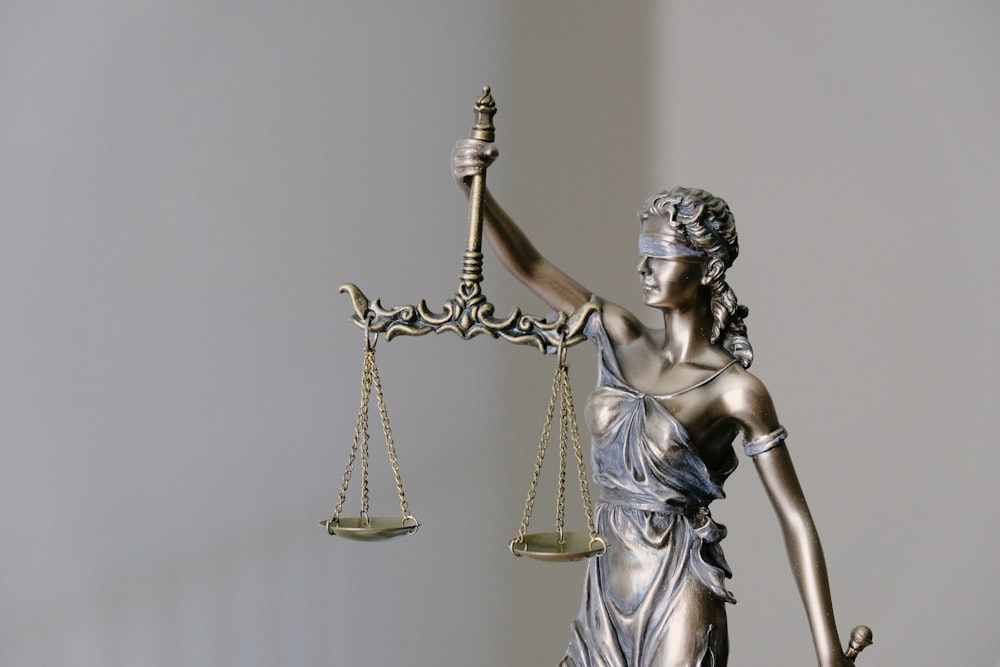
6 Best Ways to Keep Criminal Justice Information Secure
As a society, we rely on criminal justice systems to ensure public safety and uphold the law. But for these systems to function effectively, the information they hold must be kept secure. From confidential court documents to sensitive personal information, a breach of criminal justice information can have serious consequences – including identity theft, financial fraud, and public safety risks.
In this post, we'll explore the best ways to keep criminal justice information secure. From encrypting sensitive data to training employees on cybersecurity best practices, we'll cover the steps you can take to protect this critical information. So, whether you're a law enforcement professional, a member of the judiciary, or simply someone concerned about the security of criminal justice information, read on to learn more.

1.Verify the authenticity of criminal justice information
The information used in the criminal justice system must be accurate and reliable. This includes everything from court documents and evidence to personal data and records.
One way to ensure the authenticity of criminal justice information is to conduct an criminal authentication history check for those responsible for providing or accessing it. This can be done through background checks, identity verification, and other methods.
It's essential to have robust processes to verify the authenticity of criminal justice information. This can help protect against false or misleading information, which can have serious consequences – including wrongful convictions, mistaken identifications, and other issues.
Many tools and services are available to verify criminal justice information's authenticity. Some options include using background check services, requiring identity documents and other forms of identification, and using biometric authentication methods like fingerprinting or facial recognition.

2.Use encryption to secure sensitive criminal justice data
Encrypting sensitive data is essential in protecting it from unauthorized access, which is especially important regarding criminal justice information. This type of information often includes sensitive personal details, confidential court documents, and other sensitive information that must be kept secure to protect the privacy of individuals and ensure the integrity of the criminal justice system.
You'll need to use specialized software or tools to encrypt criminal justice data. There are many options available, including both free and paid options. Some popular encryption tools include GPG (GNU Privacy Guard), TrueCrypt, and 7-Zip.
Choosing a robust and secure encryption algorithm, such as AES (Advanced Encryption Standard), RSA (Rivest-Shamir-Adleman), or Blowfish, can be valuable. And be sure to regularly update your encryption software and keys to ensure that your data remains secure.
By using encryption to secure sensitive criminal justice data, you can protect against cyber-attacks and unauthorized access and help ensure the integrity and confidentiality of this critical information.

3. Implement access controls to prevent unauthorized access
Access controls ensure that only authorized individuals can access sensitive information. These controls include passwords, biometric authentication, and security clearance levels. When it comes to criminal justice information, access controls are essential. This type of information is often susceptible and confidential, and it's crucial that authorized individuals only access it.
There are many ways to implement access controls. One standard method is to use passwords, which require users to enter a specific combination of characters to gain access to a system or data. It's essential to use strong passwords that are difficult to guess or crack and to regularly update them to protect against password cracking and other cyber-attacks.
Another option is biometric authentication, which uses solid characteristics like fingerprints or facial recognition to verify a user's identity. This can provide an additional layer of security, as biometric data is difficult to forge or replicate.
It's also essential to implement access controls at different levels, depending on the sensitivity of the information. For example, you might have different clearance levels for different types of criminal justice information, with higher clearance levels required for access to more sensitive information.
4. Train employees on cybersecurity best practices
Employee training is an important part of any cybersecurity strategy, and this is especially true in the criminal justice sector. Criminal justice professionals often handle sensitive information, must be aware of the risks, and know how to protect against them.
Many different topics should be covered in employee cybersecurity training, including:
- Identifying and avoiding phishing attacks
- Protecting against malware and other types of cyber threats
- Using strong passwords and regularly updating them
- Protecting sensitive information from unauthorized access
- Recognizing and reporting suspicious activity
5.Use secure networks and devices to protect criminal justice information
Using secure networks and devices is essential in protecting criminal justice information from cyber attacks. This includes your networks and devices to access and store sensitive data and your employees' networks and devices.
There are a few key steps you can take to ensure that your networks and devices are secure:
- Use a virtual private network (VPN) when accessing sensitive criminal justice information over a public network. VPNs secure your data and hide your IP address, making it more difficult for hackers to access your information.
- Use up-to-date security software on all devices that access sensitive criminal justice information. This includes antivirus software, firewalls, and other security measures.
- Avoid using public WiFi networks to access sensitive criminal justice information. These networks are often unsecured and can be easily accessed by hackers.
- Use secure servers and storage solutions to store sensitive criminal justice information. This can include using cloud-based storage solutions with solid security measures or on-premises servers with robust security protocols.
6.Regularly review and update security measures
It's essential to regularly review and update your security measures to ensure they are practical and up-to-date. This includes everything from passwords and access controls to encryption and employee training.
Regularly reviewing and updating your security measures can ensure that you are taking steps to protect against the latest threats and vulnerabilities. This is especially important in the criminal justice sector, where the risk of cyber-attacks and unauthorized access to sensitive information is always present.
- Some specific steps you can take to review and update your security measures include:
- Conducting periodic security audits to identify potential vulnerabilities
- Updating security software and encryption algorithms to the latest versions
- Providing ongoing employee training on cybersecurity best practices
- Reviewing and updating access controls to ensure that only authorized people have access to sensitive information
Conclusion
Keeping criminal justice information secure is of the utmost importance. From encrypting sensitive data to verifying the authenticity of the information, there are many steps you can take to protect this critical information.
Remember, the consequences of a breach of criminal justice information can be severe – including identity theft, financial fraud, and even public safety risks. By taking the steps outlined in this post, you can help protect against these risks and ensure the integrity and confidentiality of criminal justice information.
SIIT Courses and Certification
Also Online IT Certification Courses & Online Technical Certificate Programs


